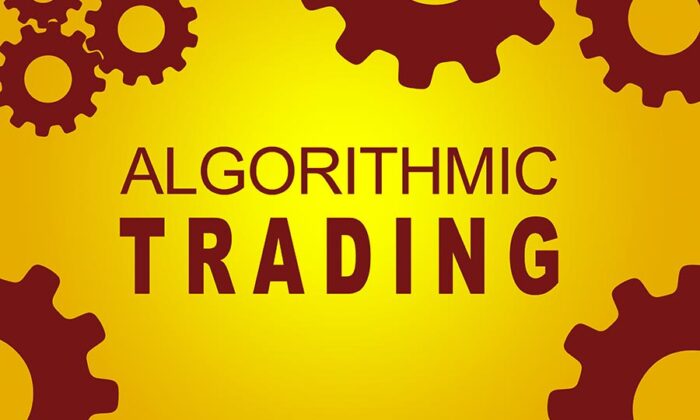The article “Algorithmic Trading Vs Discretionary Trading” first appeared on QuantInsti blog.
If you are a discretionary trader, you might have asked these questions before
- What is the future of algorithmic trading?
- Should I switch from discretionary trading to algorithmic trading?
- Is algorithmic trading taking over the financial markets?
- Who will win this war between man and machine?
In order to answer these questions, we first need to know what makes these practices stand apart from each other. This blog discusses algorithmic trading and discretionary trading, which skills you need to acquire for each and the difference between algorithmic trading and discretionary trading.
This blog covers the following:
- What is algorithmic trading?
- What is discretionary trading?
- Skills required for algorithmic trading
- Skills required for discretionary trading
- How to acquire the skills for algorithmic trading and discretionary trading?
- Difference between algorithmic trading and discretionary trading
- What is better: algorithmic trading or discretionary trading?
What is algorithmic trading?
Algorithmic trading, or simply algo trading, is the process of placing orders in the market based on a certain trading logic via online trading terminals. Algo trading is also known as black-box trading in some cases. The algo trading process includes executing the instructions generated by various trading algorithms.
In simple words, algorithmic trading is a process of converting a trading strategy into computer code which buys and sells (places the trade) the shares in an automated, fast and accurate way.
Since the automated way of trading is faster and more accurate, it is preferred nowadays and rapidly increasing its reach in emerging markets.
Technically, several mathematical algorithms are at play for making trading decisions based on current market data, which then send and execute the order(s) in the financial markets. This method makes trading free of all human emotional impacts (like fear, greed, etc.) since decisions to carry out each trade are systematically made by computers.
For instance, the algorithm buys shares of Apple (AAPL) if the share’s current market price is less than the 200 days average price. Conversely, it would sell Apple (AAPL) shares if the current market price exceeds the 200-day’s average price.
What is discretionary trading?
Discretionary trading existed before algorithmic trading came into being. In the bygone era, people used to carry out trading manually. Manual or discretionary trading required the traders to place the trade over the phone or electronically via computers.
Back in time, when the concept of automated trading was not introduced, traders would manually gather data from the market, analyse it and make decisions to trade based on that.
Hence, historically, there used to be human traders who would make decisions to buy or sell stocks based on market data. Over a period of time, the need for a faster, more reliable (free of human emotions), and more accurate method led to the invention of algorithmic trading.
Let us move to the skills needed for both algorithmic and discretionary trading.
Skills required for algorithmic trading
The following skills are needed for algorithmic trading:
- Mathematical and analytical skills
- Programming skills
- Strategy development process
- Understanding the nitty gritty of algo trading (use of large datasets, AI etc.)
Mathematical and analytical skills
The basic mathematical and analytical skills are a must for an algorithmic trader to create trading strategies. On the basis of maths and analysis, the trader creates a logical strategy.
Programming skills
The knowledge of a programming language such as Python Programing is an advantage in algorithmic trading. This helps you to backtest the strategy with all the available libraries. Also, you can visualise the data for better analysis and decision-making with regard to the trading strategy.
Strategy development process
The strategy development process is one of the most integral parts of algorithmic trading.
The risks and rewards of a strategy are necessary to be understood to determine whether it will help with expected returns or not.
Understanding the nitty gritty of algo trading (use of large datasets, AI etc.)
This is also an essential skill for algorithmic traders. Until and unless you know the nitty-gritty of algorithmic trading, such as dealing with large datasets, AI or Machine Learning etc., the algo trading process will remain incomplete.
Skills required for discretionary trading
The following skills are needed for discretionary trading:
- Experience in the stock market
- Analytical skill
- Attention span to monitor the market
- Emotional intelligence
Experience in the stock market
To become a discretionary trader, you must have experience in the stock market in order to understand how the market works and when to make trade-related decisions.
Analytical skill
The skill to do analysis is a must for a successful trading journey. The analytical skills help you devise trading strategies based on complete research and understanding of the performance of the market and the financial instruments you invest in.
Attention span to monitor the market
Since discretionary trading requires regular monitoring of the market, the attention span of the trader needs to be really good. Or else the profitable opportunities can be missed. The trader must be aware of any new information relating to the market or the stocks in the portfolio.
This is important because any recent change can lead to investors buying or selling the stocks.
For example, an announcement regarding the merger of one company with another can lead to a change in investor sentiment. This can either cause the selling or buying of the particular stocks based on the reputation and trust in the company it is being merged into.
Emotional intelligence
A high emotional intelligence is a must for a trader because it helps to avoid sudden decisions influenced by emotions such as fear, greed, doubt etc. Hence, any trader needs to be emotionally intelligent to think and act logically.
How to acquire the skills for algorithmic trading and discretionary trading?
The skills required for discretionary trading depend on your personal ability to be able to keep yourself disciplined with regard to emotions, market monitoring, etc. in order to trade successfully.
When it comes to algorithmic trading, you need to be disciplined with regard to learning how the algorithms can be made to work for you to execute successful trade orders. Also, you need to learn programming to be able to program the trading strategy in a coding language such as Python, C, C++ etc.
To acquire the skills to begin your career in algorithmic trading, one must look for a course or, let us say, a programme with well-defined learning outcomes.
Let us see the skills needed in brief
- Analytical thinking – This is needed to do a proper analysis before taking decisions about entering and exiting the market.
- Mathematical knowledge – It is always better to use mathematical knowledge while analysing the market or stocks for the most accurate predictions.
- Programming – It is a must for coding your trading strategies and for executions of the same.
- Experience and knowledge of financial markets – With experience in the financial markets and knowledge of the same, you will be able to assess and predict situations with much more efficiency as compared to one with limited knowledge.
- Thorough knowledge of the strategy creation process – The strategy creation process is one of the most important parts of any trading activity. The strategy is executed to reap expected returns.
Last, but not least, you must find a course that lets you acquire skills that you do not possess but are integral to becoming a trader (be it algorithmic or discretionary trader).
You can check the skill sets mentioned in the section above and find out the ones that need to be worked on and the ones you already possess.
Visit QuantInsti to read about the difference between algorithmic trading and discretionary trading.
Join The Conversation
If you have a general question, it may already be covered in our FAQs. If you have an account-specific question or concern, please reach out to Client Services.
Leave a Reply
Disclosure: Interactive Brokers
Information posted on IBKR Campus that is provided by third-parties does NOT constitute a recommendation that you should contract for the services of that third party. Third-party participants who contribute to IBKR Campus are independent of Interactive Brokers and Interactive Brokers does not make any representations or warranties concerning the services offered, their past or future performance, or the accuracy of the information provided by the third party. Past performance is no guarantee of future results.
This material is from QuantInsti and is being posted with its permission. The views expressed in this material are solely those of the author and/or QuantInsti and Interactive Brokers is not endorsing or recommending any investment or trading discussed in the material. This material is not and should not be construed as an offer to buy or sell any security. It should not be construed as research or investment advice or a recommendation to buy, sell or hold any security or commodity. This material does not and is not intended to take into account the particular financial conditions, investment objectives or requirements of individual customers. Before acting on this material, you should consider whether it is suitable for your particular circumstances and, as necessary, seek professional advice.
















Any bugs occurs during trading on that algorithm what’s happens it’s my doubt
Hello Anonymous. As stated in the article, basic mathematical and analytical skills are a must for an algorithmic trader to create trading strategies. If you would like to strengthen these skills, we encourage you to find a course such as these on our IBKR Campus website: https://ibkrcampus.com/trading-course/tws-algos/